Read our main research reports, organisational reports, Reconciliation News magazine, and other publications.
Search
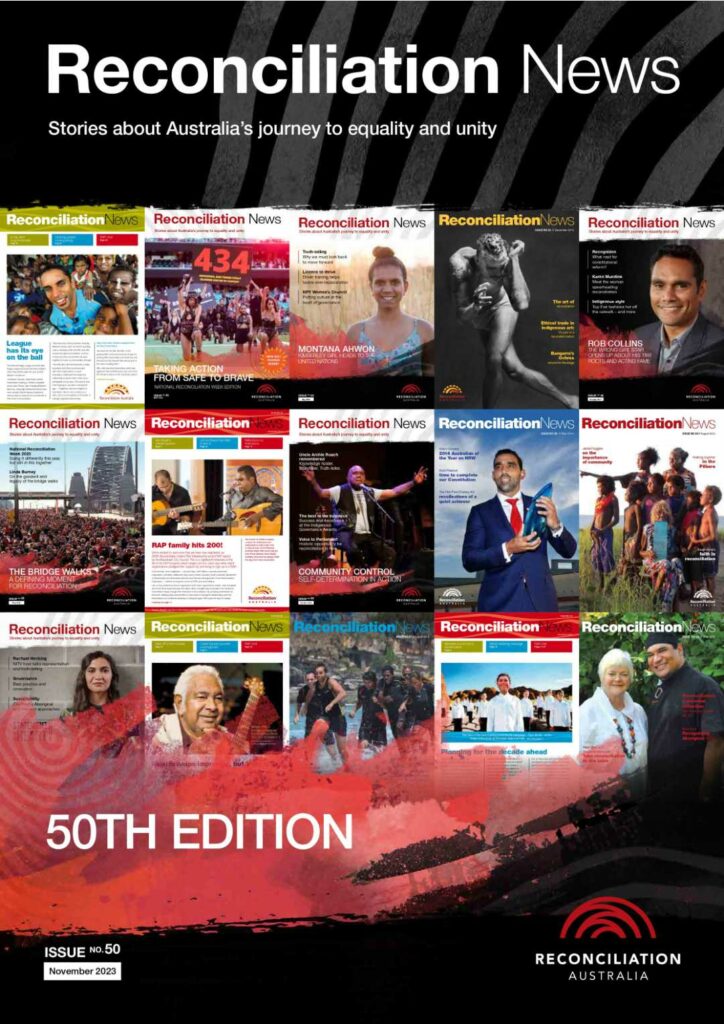
Reconciliation News November 2023
Reconciliation News celebrates 50 editions of enlivening the reconciliation movement through the power of story-telling.
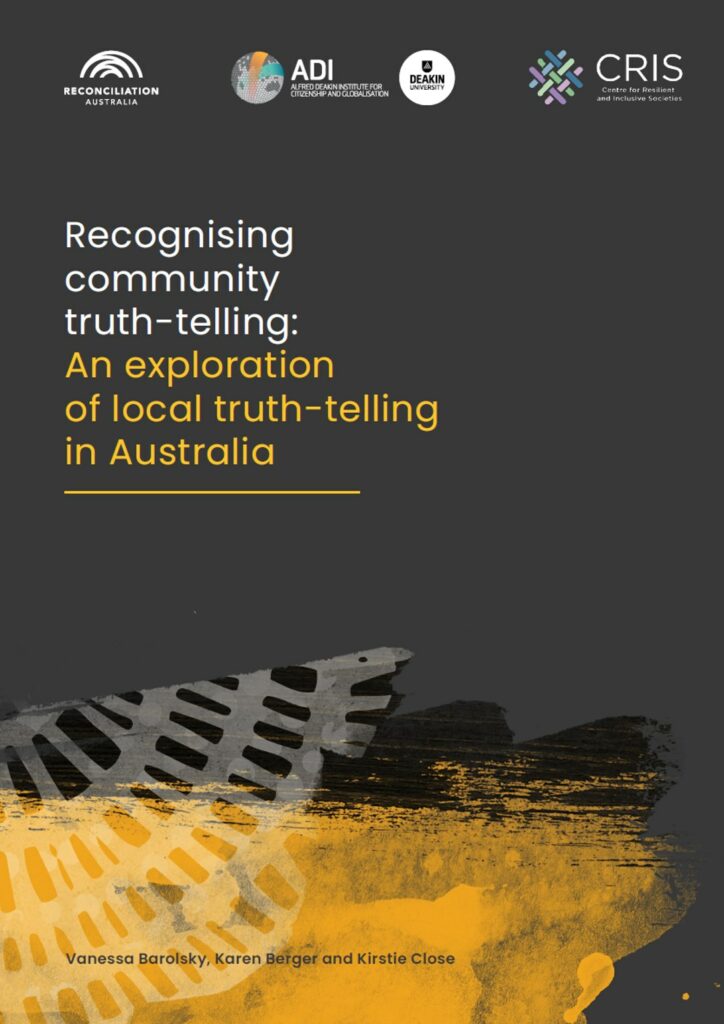
Recognising community truth-telling: An exploration of local truth-telling in Australia
The case studies in this report show the many ways community truth-telling initiatives in Australia are being realised and how these efforts contribute to reconciliation.
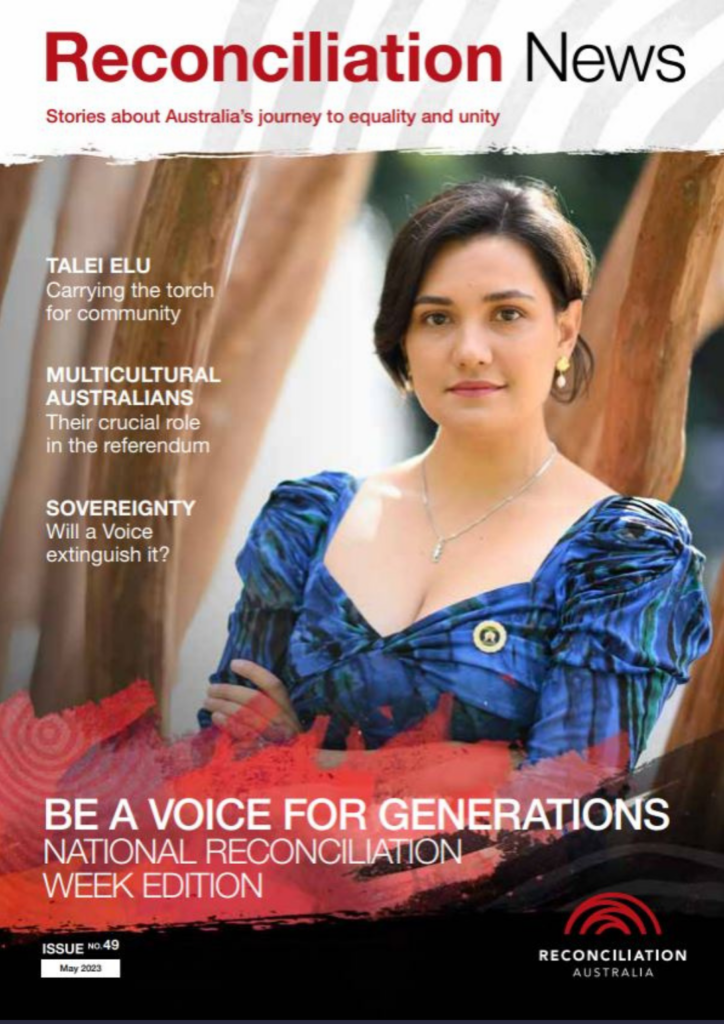
Reconciliation News May 2023
This edition of Reconciliation News is all about voice: how to raise it; how to support it; and when to stop and listen.
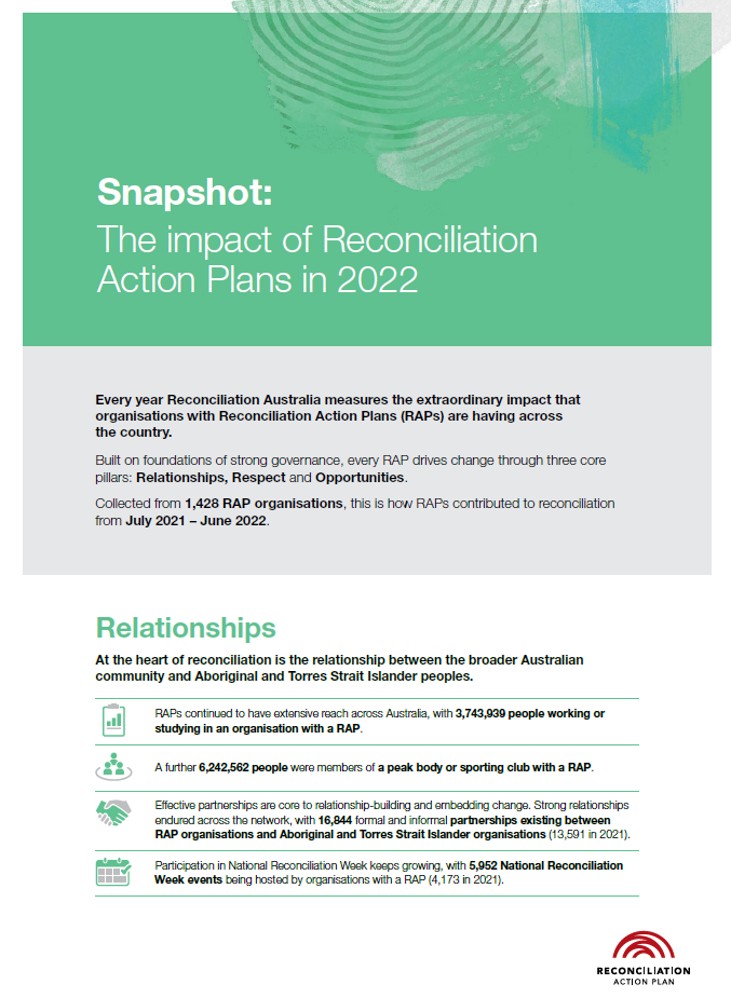
2022 RAP Impact Report
The 2022 RAP Impact report measured the extraordinary impact that RAPs are having across the country, over the 2022 financial year.
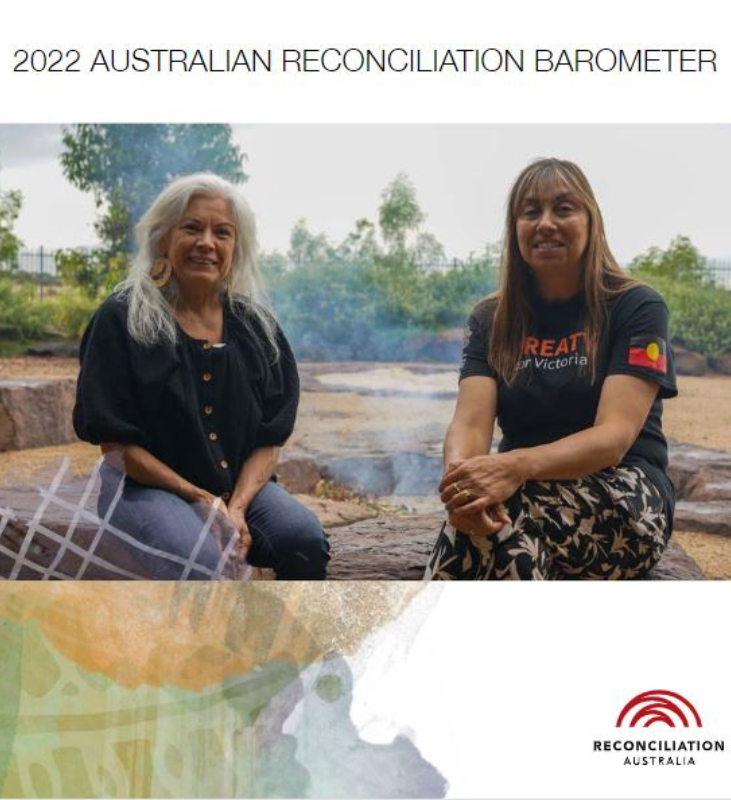
2022 Australian Reconciliation Barometer
The Australian Reconciliation Barometer (ARB) is a national research study that looks at the relationship between Aboriginal and Torres Strait Islander peoples and other Australians, and how perceptions affect progress towards reconciliation.
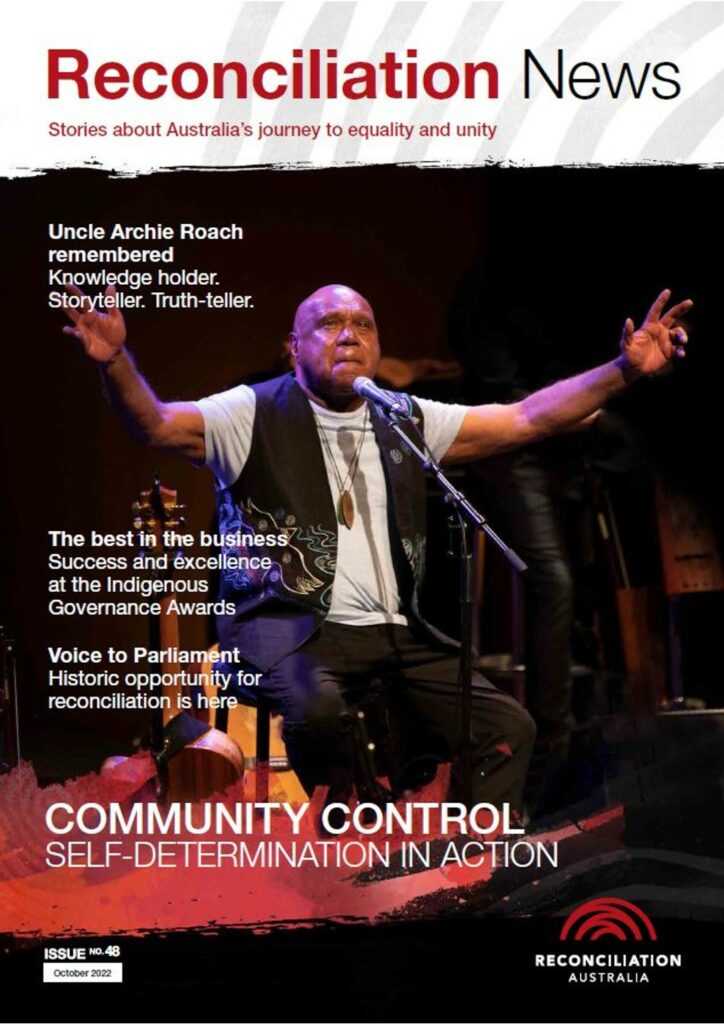
Reconciliation News October 2022
Edition 48 of Reconciliation News brings you stories of community-driven success, excellence and self-determination; in Indigenous-led organisations, sports, schools and in Government.


